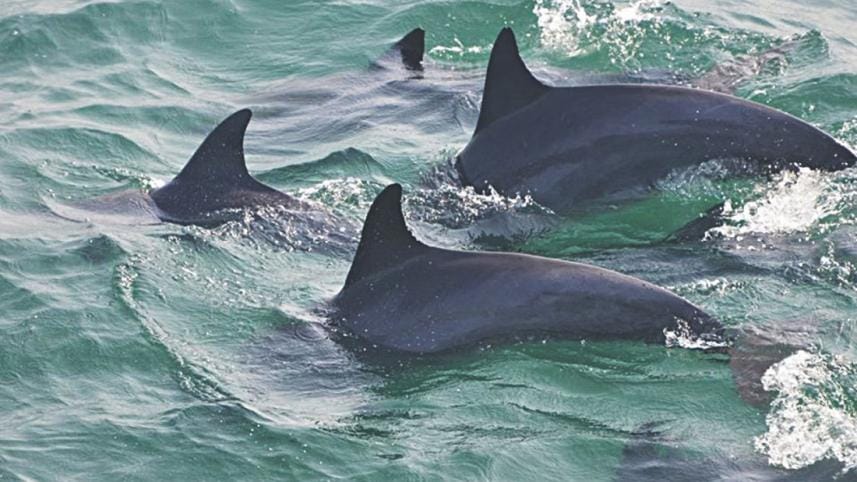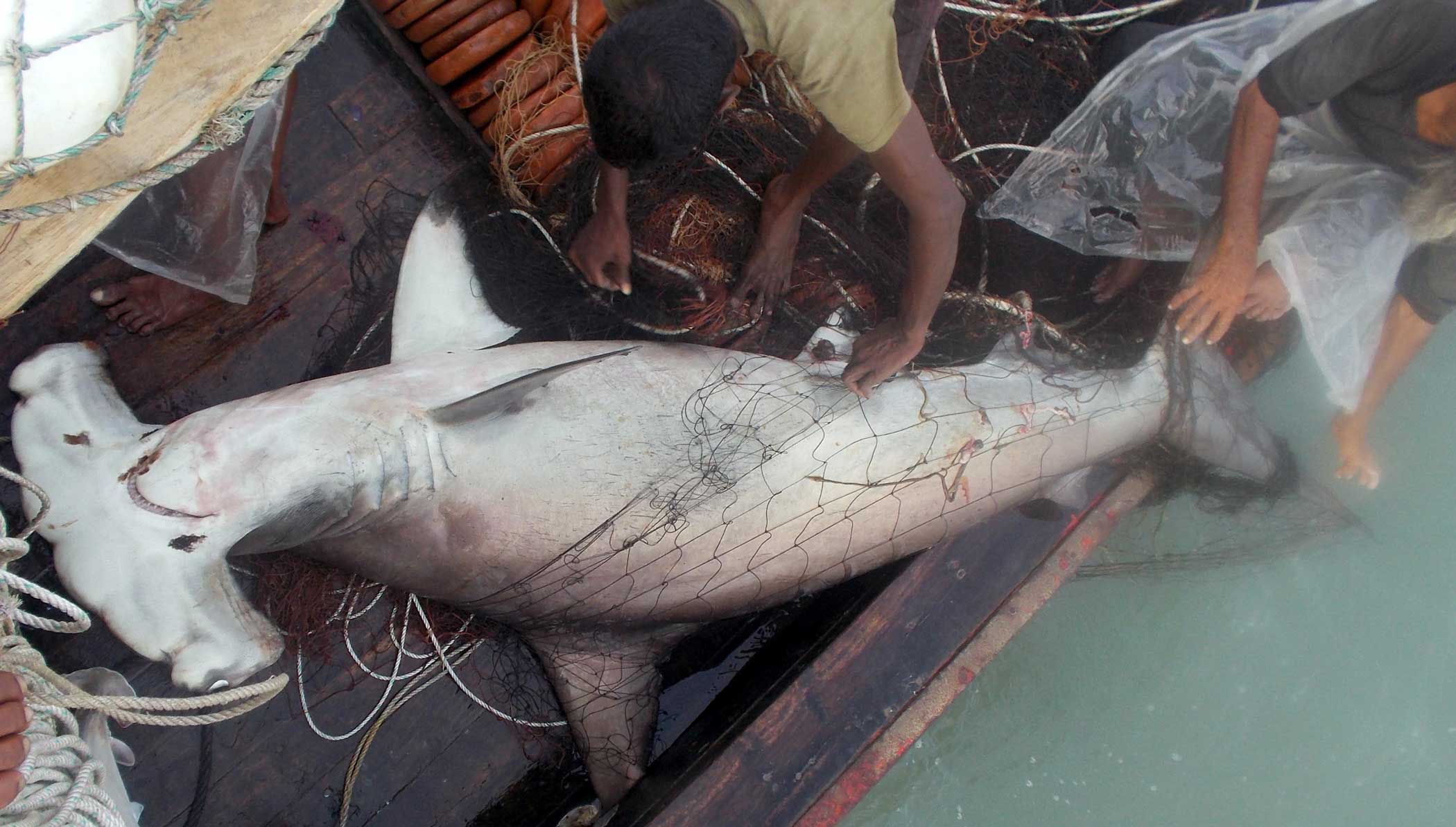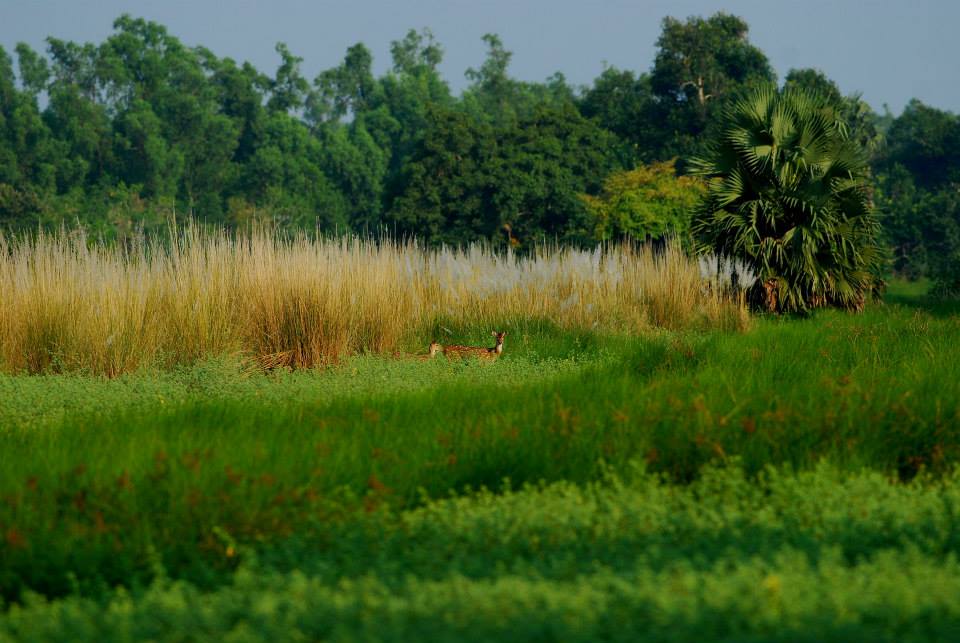Creating a community for conservation

Recently, I wrote in The Daily Star about the role of the Forest Department (FD) and Department of Environment (DoE) in conservation by managing protected areas (e.g., in the Sundarbans and Lawachhara) and ecologically critical areas (e.g., four rivers around Dhaka city and the Cox's Bazar coast), respectively. Such ecosystem-based efforts could also be seen by other agencies. Let's take the fisheries and livestock ministry and its Department of Fisheries (DoF) as an example. In 2009-2015, the DoF implemented the Wetland Biodiversity Rehabilitation Project (WBRP), funded by German development agency GIZ. When the project realised the need for conserving the Gangetic river dolphins, on December 1, 2013, the environment ministry declared three freshwater dolphin sanctuaries totalling 578.28 hectares in the Pabna region.
The Wildlife (Conservation and Security) Act, 2012 allows declaration of marine protected areas (MPAs) in the Bay of Bengal. The Swatch of No-Ground MPA (1,738 sq-km) was the first one to be declared in 2014. Nijhum Dwip offshore island has been a national park since 2001 under the 1974 edition of the Wildlife Act. In 2018-2019, The WorldFish/USAID's ECOFISH Activity, IUCN, and Wildlife Conservation Society (WCS) explored the option of declaring an MPA around this island. However, in 2019, the fisheries and livestock ministry declared 3,188 sq-km of this island's seascape as a "marine reserve" under the Marine Fisheries Ordinance, 1983. While marine reserves and MPAs seem synonymous, they are not legally and jurisdiction-wise. Nevertheless, the first marine reserve (698 sq-km) in the Bay of Bengal was declared in 2000, and the latest Marine Fisheries Act, 2020 (succeeding the 1983 Ordinance) continues to support conservation of marine plants and animals (Article 29).
Of course, we see overlapping jurisdictions in conserving our only bay. For instance, in 2022, the environment ministry declared the surrounding waters of Saint Martin's Island an MPA. This offshore island has been an ECA since 1999 under the Bangladesh Environment Conservation Act, 1995 (last amended in 2010). But how will this MPA be managed since the environment ministry or its concerned departments don't have in-house capacity to operate on the sea? The ministry issued the Protected Area Management Rules, 2017 to facilitate participatory management of such protected areas. While our country does have long co-management experience regarding land and inland waters, it doesn't have it for the sea. It is therefore important to make a separate rule to manage the MPAs.
Tanguar Haor in Sunamganj, a globally important wetland, tells us an interesting story of participatory management since 2006. Such collaborative management of this ecosystem was possible only because the land ministry handed it over to the environment ministry in 2001. This landmark step stopped the over-exploitative leasing system the district administration used to manage there, and coincided with the haor being designated as an ECA (1999) and a Ramsar Site (2000).
The land ministry has been an important stakeholder in wetland management in the country. For example, as per the website of Center for Natural Resource Studies (CNRS), using the provision outlined in the National Fisheries Policy 1998, the land ministry declared more than 200 water bodies as permanent sanctuaries, placing their management with the DoF. While many of those wetlands are now poorly managed, Baikka Beel in Moulvibazar showcases a promising example of wetland restoration and biodiversity conservation with participation from the local people, donors, NGOs, and government offices, specifically the land ministry.
Nevertheless, the way climate action has been mainstreamed into different ministries and departments in recent years, we don't see the same for conservation action. The Bangladesh Climate Change Strategy and Action Plan since 2009, the Bangladesh Climate Change Trust Fund since 2010, climate-relevant budget for ministries/agencies since 2015, and the National Adaptation Plan of Bangladesh (2023-2050) since 2022—all underscore climate responsibilities of concerned ministries and agencies. While since 2004, the National Biodiversity Strategy and Action Plans (NBSAPs) are giving similar directions to the government entities, it utterly failed to be effective in absence of able leadership and sufficient finance.
We, however, now see a new opportunity to mainstream biodiversity conservation into the public sector. For example, the ongoing Coastal Town Resilience Project in 22 coastal municipalities, supported by ADB and implemented by the Local Government Engineering Department (LGED), includes nature-based solutions (NbS). Here, NbS interventions would include protection, conservation, restoration, sustainable management, and creation of diverse ecosystems to tackle negative impacts of disasters and climate change, and produce tangible benefits for the vulnerable urban populations and biodiversity alike.
To ensure that such mainstreaming continues, we need to rethink our collective approach, since producing action plans alone is not helping conservation. We need to establish a vibrant "Community of Interest on NbS" (CoI-NbS) by bringing together government and non-government entities to take NbS, thus conservation, forward in Bangladesh. The International Centre for Climate Change and Development (ICCCAD) and the University of Oxford attempted that in 2020, which couldn't gain its due momentum. The environment ministry or any relevant NGO/CSO may act as a secretariat of the proposed CoI-NbS. This community would offer space for experience sharing on NbS, provide evidence to the stakeholders on progress, effectiveness, successes and failures in NbS, and identify opportunities to integrate climate and conservation actions through knowledge mobilisation by putting new conservation knowledge into action. As the environment ministry is starting to prepare a new NBSAP, can we capitalise on this policy influencing window to establish the CoI-NbS? Is there any taker?
Dr Haseeb Md Irfanullah is an independent consultant working on environment, climate change, and research systems. He is a visiting research fellow at the University of Liberal Arts Bangladesh (ULAB). He can be reached at hmirfanullah@outlook.com
Views expressed in this article are the author's own.
Follow The Daily Star Opinion on Facebook for the latest opinions, commentaries and analyses by experts and professionals. To contribute your article or letter to The Daily Star Opinion, see our guidelines for submission.

 For all latest news, follow The Daily Star's Google News channel.
For all latest news, follow The Daily Star's Google News channel. 


Comments